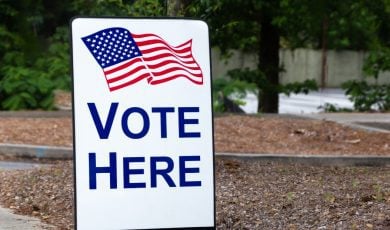Coin-operated amusement machines (COAM) are the closest thing to legal slot machines in the state of Georgia, and one of the state’s most populous counties might soon enact some new rules around them. A new potential ordinance would add a bevy of new location restrictions to the rules for Macon-Bibb County COAM.
The county’s commission could vote on the ordinance this week. If enacted, it might effectively bar many new COAMs from popping up in the county and set a precedent for future gambling expansions.
New Macon-Bibb County COAM rules on the docket
Coin-operated amusement machines operate in GA under the auspices of the state’s lottery since 2013. There are two classes. Class A includes things like pinball machines and pool tables that require coins to use them.
Class B machines, however, are age-restricted games of skill that give out redemption tickets. The potential prizes include bonus plays, GA lottery tickets, and merchandise from the license holders. State law bans the awarding of cash for successful play.
In the fiscal year 2019-20, GA residents and visitors spent over $3 billion statewide on the machines. That translated to gross revenues of $900 million for the stakeholders, which include the businesses that hold the licenses.
One member of the Macon-Bibb Co. Commission, Virgil Watkins, wants to see the potential places where licensees can post the machines greatly limited.
“I think a lot of folks in leadership, myself, the county commission, the mayor, also planning and zoning, all have taken note that things going on with COAM industry and convenience stores is a bit out of hand in our community,” Watkins stated. “We’re trying to provide regulation and oversight to raise more accountability to the industry with the idea to help our citizens live better lives.”
Macon-Bibb Co. already has some tighter rules around COAMs than the state. For example, each licensee in the county can only have six machines whereas the state allows nine. Watkins’ proposal would codify a lot more restrictions around their locations.
What the new ordinance would change
Watkins’ ordinance focuses on the location of the machines rather than the number or type. It doesn’t apply to machines that exist at the time the county would potentially start enforcing the new rules, however, and it would apply to both Class A and Class B machines equally, however. All existing machines would be exempt.
The ordinance would ban any new machines within 100 feet of any:
- Alcohol treatment center
- Church
- County-operated recreation center
- Housing authority property
- Public library
Businesses could not offer such amusement within 200 feet of any college campus, educational building, or school. Furthermore, the county would ban all machines within 1,500 feet of any establishment with a liquor license and 2,500 feet of any “vice mart, any other small box retail store, or any small box discount store.”
It’s unclear how much support Watkins has from other Commission members. The ordinance was up for consideration at the Dec. 7 meeting but the members didn’t act on it.

Even if this ordinance fails to become part of the county’s code, it gives residents an insight into where the sentiments lie of at least some of its leadership. This vote might act as sort of a referendum on the possibility of future gaming expansions in the area.
What this measure says about the future of Georgia gambling
If there’s this much concern about the location of games of skill, then the environment seems anything but wide-open for games of pure chance like those Georgians can find at casinos in other states. However, that doesn’t mean there aren’t parties in GA that would love to see the state expand on legal gambling, anyway.
In fact, state lawmakers filed bills to allow for betting on horse racing, legal GA sports betting, and a statewide referendum to allow for brick-and-mortar casinos. None of them came close to passage, however.
The approach to COAM rules in Macon-Bibb Co., the estimated 16th-most populous in the state, suggests that some leaders might try to block a casino there should such gaming ever become legal as far as the state is concerned. Such movements might bring up issues of how much control local governments should have over gaming matters.
That’s mostly a hypothetical conversation right now, though. The real conversation is whether to enact Watkins’ restrictions on COAM machines. Residents should have a chance to participate in that dialogue in the next Commission meeting.








